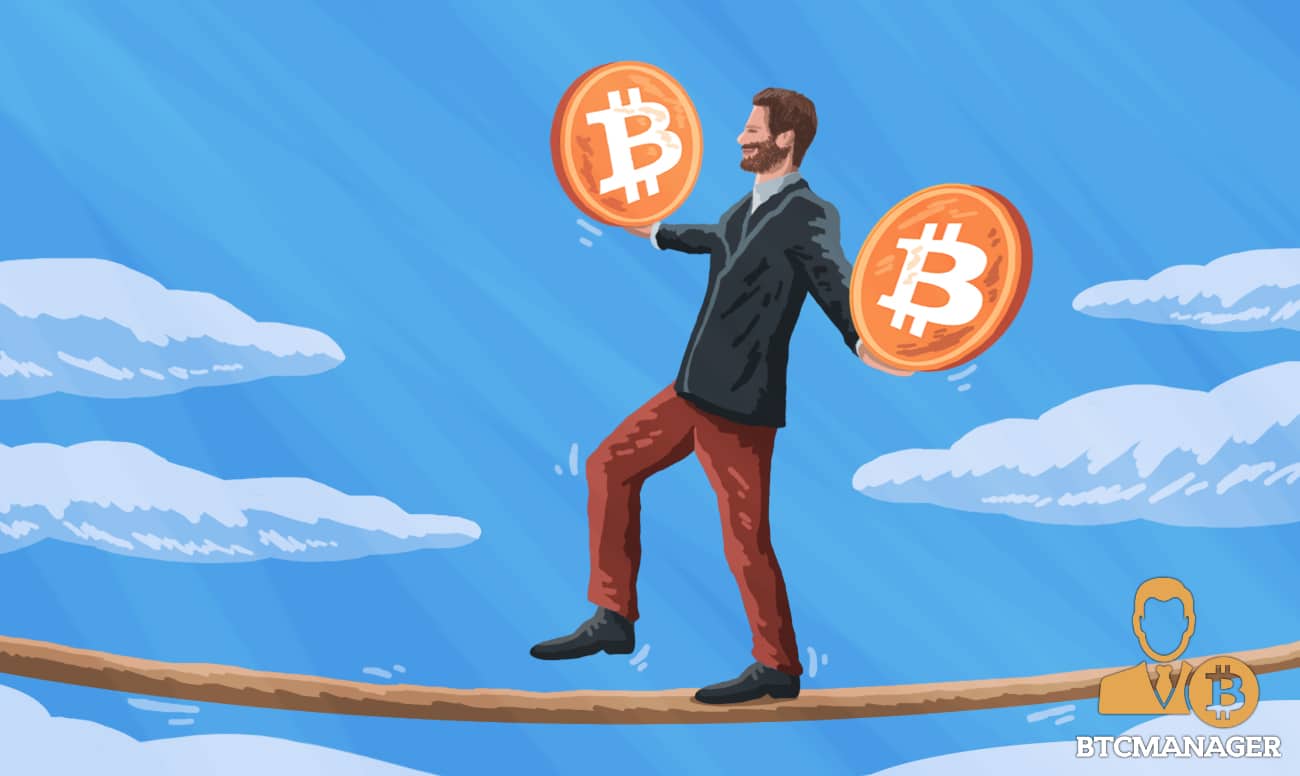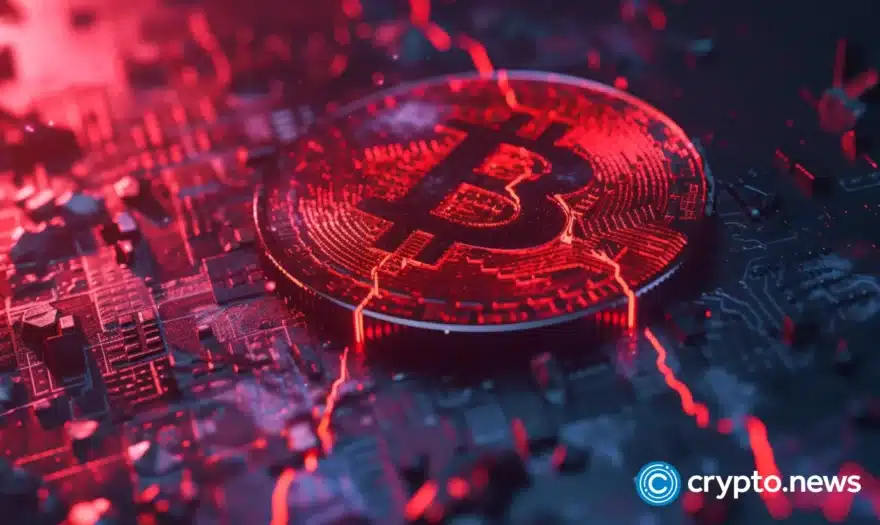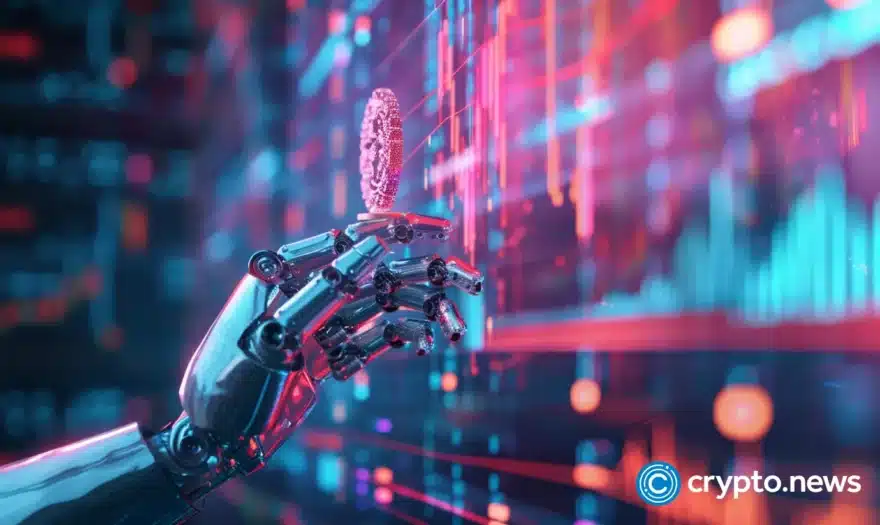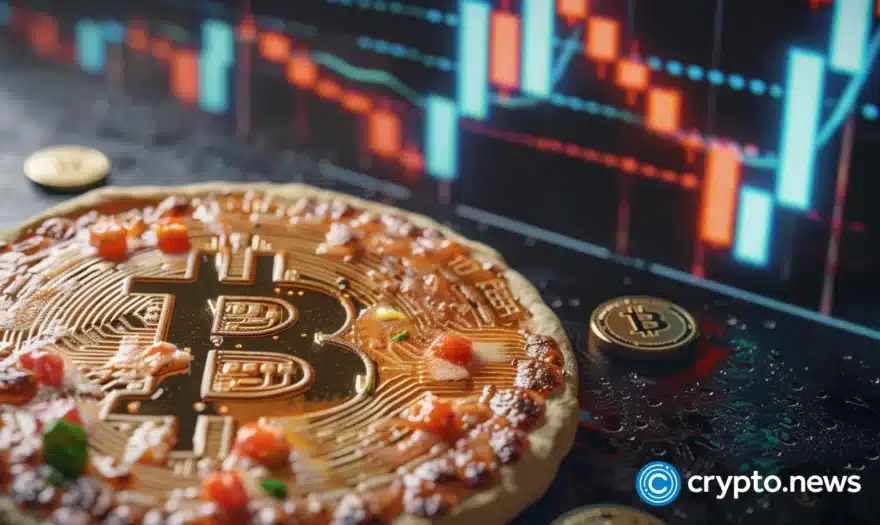Can Bitcoin Exist Without Trust?

In an individualistic commodity society, there are no relationships of solidarity that protect you against uncertainty. The existence of a person in such a community depends only on his ability to acquire (buy) the things he needs on the market. For this reason, individuals are looking for an item that would give them an opportunity to purchase any product in the future. Each person is looking for a product that will provide him with a link to society and, thereby, insurance against the uncertainty of the future. At current, money offers such a product\commodity.
From Shells to Bitcoin
From the creation of the world, people have been choosing different things to play the role of money. What is important to note is that none of these roles can become money forever. This fact, in and of itself, becomes a new source of risk and uncertainty. Individuals who believe in the fungibility of this product for any other product on one day may see this characteristic weaken or even disappear another day altogether. Therefore, the trust of individuals in an item used as money must always be maintained.
The authorities of most countries, except those that officially adopted full dollarization, take care of strengthening confidence in their national currencies. This is done by developing and the third world countries struggling with dollarization and seeking to introduce their currencies into international circulation. This same feat is done by developed nations too, whose currencies are used in global distribution and dollarize weak economies.
From shells to #bitcoin – the evolution of money in our new #dbgraphic https://t.co/MCrylEE2MT pic.twitter.com/9rcvH72hyb
— Deutsche Bank (@DeutscheBank) March 13, 2018
In the era of floating exchange rates, the dependence of money on trust is much stronger than in the age of the gold standard. Any currency trader knows that sometimes words affect exchange rates more than macroeconomic indicators.
Anatomy of trust in money
The functioning of money is based on several forms of trust.
First, the belief that a specific item can be exchanged in the market for any product arises from the experience of similar past exchanges. Regular exchanges of one thing for other goods by a multitude of individuals strengthen their confidence that this unspoken exchange rule will be observed in the future.
In pursuit of profits, however, unspoken rules can be violated. Therefore, in the second place, trust in money is based on faith in governments or other authoritative bodies that have the capacity for legitimate coercion. If a market participant starts falsifying or counterfeiting money or otherwise violates the exchange rules, the authorities will force him to obey the rules.
For example, in England in the eighteenth century, about 65 percent of those accused of making counterfeit coins were executed. Such a reaction by authorities can be explained by the gravity and nature of our collective trust in money.
Not only do those who directly receive counterfeit money as payment suffer, but the operation undermines the confidence of market participants in the exchange rules and all counterparties involved, as well as in the government apparatus that supports these exchange rules.
Consequently, the third and most fundamental form of trust limiting political power over money is the confidence of market participants in the social system behind this money. This type of trust is the confidence in the project of the society, which is proposed by the authorities. If the authorities violate the fundamental values of this society, then the credibility of their money gets undermined.
For the capitalism of the era of free competition, the gold standard was the norm, and governments introduced fiat money as a temporary measure only in case of emergency. For modern state-monopoly capitalism, fiat money is the norm. The norm of today is the policy of redistributing wealth through manipulation of the money supply since such measures are aimed at achieving socially significant goals such as economic growth or combating unemployment.
The role of this form of trust is especially evident under the conditions of civil wars. The opposing sides can issue their own money. The scale of circulation of this money, the degree of their acceptance by market participants, reflects the strength of their issuer’s authority, the support of the social order that this issuer offers as an authoritative body.
But does Bitcoin need the above forms of trust?
Bitcoin and Three Forms of Trust
1) The owner of money believes in the opportunity to exchange it for goods. The owner of bitcoin believes in the possibility of exchanging them for fiat money. Ordinary owners of the same cryptocurrency, miners, payment processing services, speculators – all believe in this too, even those few who accept bitcoin when selling goods or providing services.
This faith has successfully developed thanks to the actions of market-makers who buy and sell significant volumes of bitcoin on cryptocurrency exchanges or through simple exchange offices. They support the liquidity of the cryptocurrency and strengthen the faith of the ecosystem participants day by day.
2) No one is obliged to accept bitcoin as payment for goods and services or as a means of paying off obligations.
On the one hand, the lack of state coercion, which is associated with the status of legal payment channels, corresponds to anarchistic ideology. On the other hand, the legitimization of money strengthens the confidence of individuals about their future. As such, money can be a tool to combat uncertainty.
Clients of banks trust governments not only because these banks have been existing for tens of years. Violation of the rules of exchange by banks entails appropriate coercion on the part of the authorities. The activities of many players in the cryptocurrency industry are still based solely on the first form of trust described by the formula “It was so yesterday – then it will be so tomorrow.”
In its pristine form, Bitcoin did not envision any third parties to carry out transactions. To date, its ecosystem has key players, without which the normal operation of the network is impossible. These are mining pools, wallet providers, exchanges, payment processing operators, etc. Ordinary users of Bitcoin should trust these intermediaries.
If tomorrow these mediators make an unexpected decision to stop accepting bitcoin, no authority will compel them to comply with established rules as any law or treaty do not fix them. Although bitcoin has already received official legal status in a number of countries, special documents regulating the activity of many cryptocurrency firms in most countries have not yet been developed.
The only example to date of such a document is the New York BitLicense. In response to the introduction of this document, a number of cryptocurrency exchanges, in particular, ShapeShift, left New York.
Decentralized wallets and exchanges, as well as smart contracts, are designed to eliminate the risk of failure to fulfill obligations by automating their execution, as opposed to the threat of criminal punishment. However, these developments are far from being enough to put an end to this issue.
3) The project of the society with which Bitcoin is initially associated is called crypto-anarchism. In this case, the authority that proposes the anarcho-capitalist scheme of society is absent. In this case, there is a “Creator” of Bitcoin, “Bitcoin-Jesus,” “Bitcoin-Evangelists” and simple believers. And the further the hierarchies of the Bitcoin community depart from the ideals of crypto-anarchism, the less trust in Bitcoin its believers will have.
This, however, does not mean that Bitcoin cannot be ideologically reformatted. Linking it to another, less radical project of society can get you the support of another, more moderate and more numerous community.
The Concept of «Trustless Money»
Ripple executives say that XRP, like Bitcoin, is not a security, so it does not involve trust in any third party and does not carry the counterparty risk. If this is so, there is also no risk that someone will not fulfill his obligations. From this argumentation, does this mean that bitcoin needs less confidence than other types of money?
There is no money without trust, but the trust associated with various types of money has its own specifications. In a sense, even the circulation of gold coins is based on trust, but fiat money requires even more trust. Accordingly, bitcoin as fiat money, which is not bound by any legal obligation by their issuer, is associated with even greater trust. So, Bitcoin is far from “trustless money.”
Private cryptocurrencies, for instance, require more trust than national currencies. Perhaps, therefore, their exchange rates are subject to such significant fluctuations: The credibility is very fragile here. Math algorithms and cryptology are better than governments. These two subjects ensure the stability of money supply, but, as already noted, neither the mathematician nor the state can provide the security of demand.
The state regulation of bitcoin contradicts the ideology that inspired its creator and continues to inspire many Bitcoin enthusiasts. However, it is no less obvious that the news about the prohibition of bitcoin pushes it dollar price course down. It is also obvious that news about state recognition strengthens the confidence in the virtual money, increasing demand and driving its price upwards. And can something be more inspiring than the growing price?











